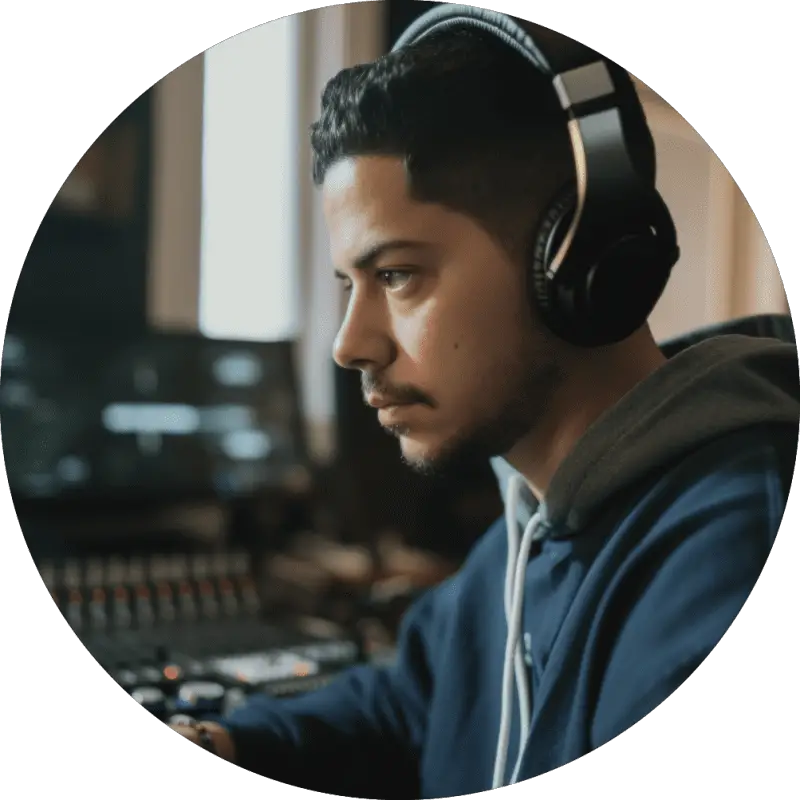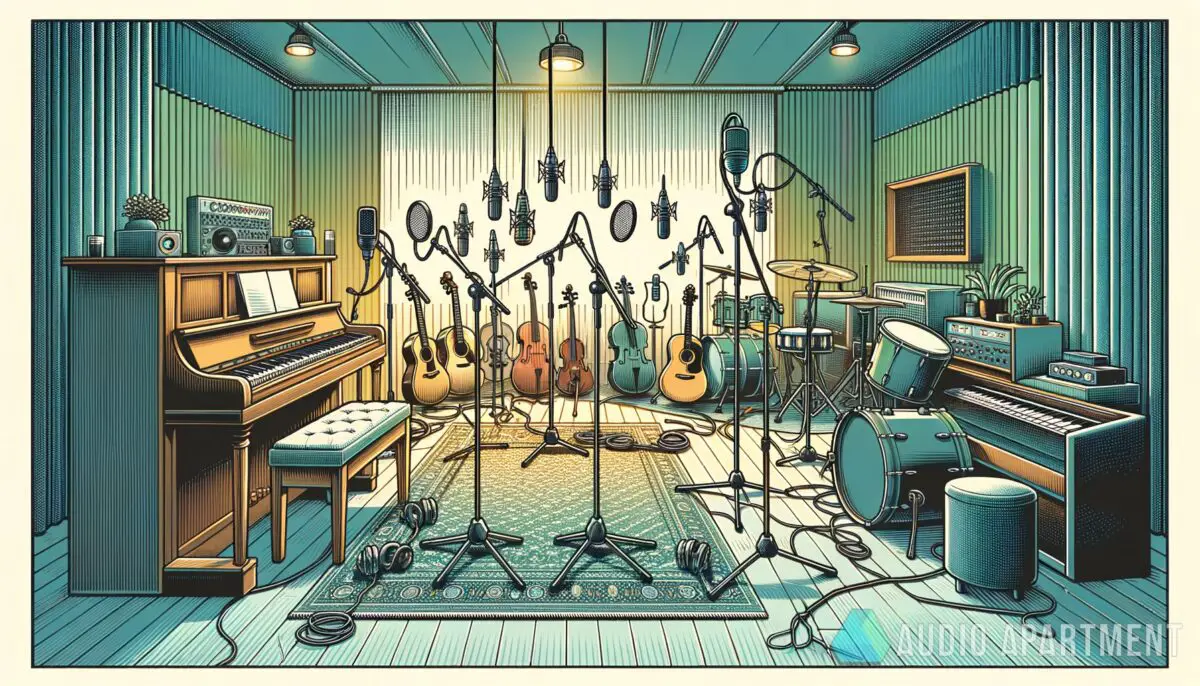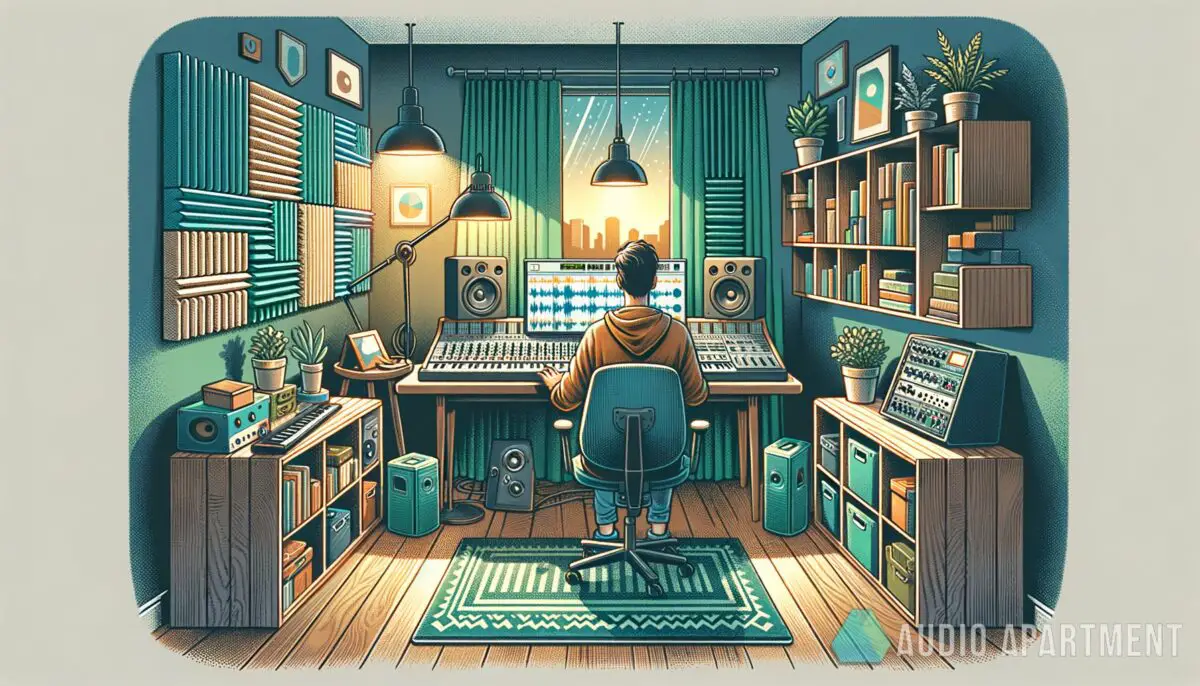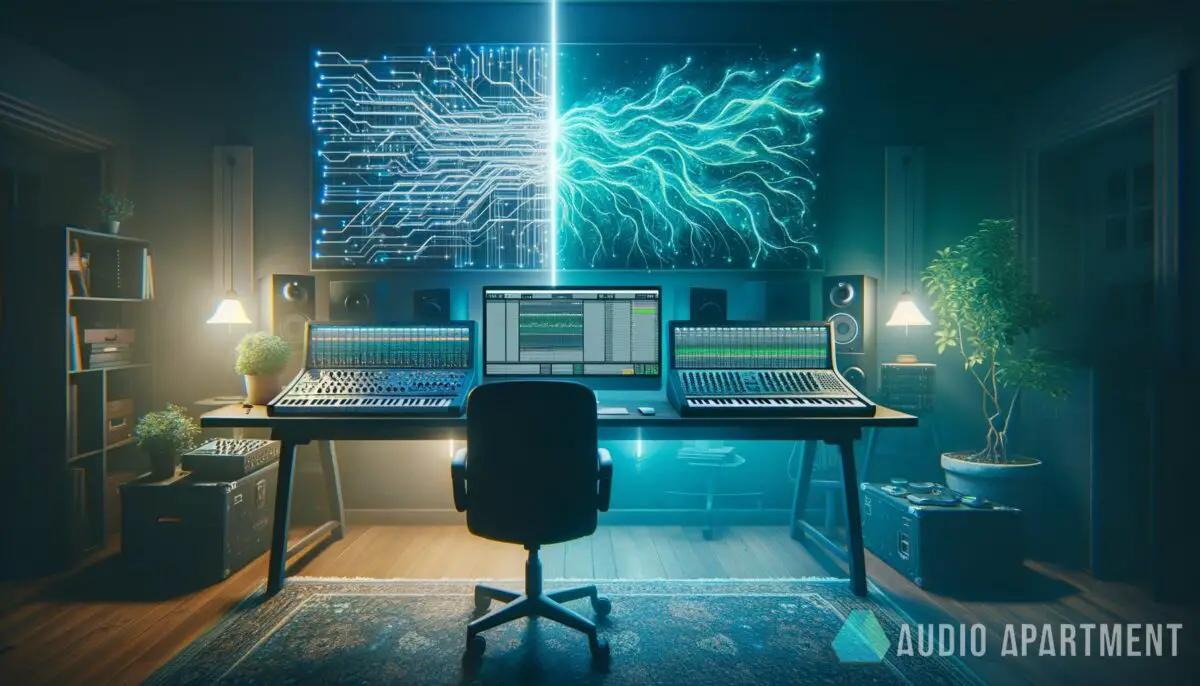If you’re interested in a career in the music industry, you’ve probably come across the terms “music engineer” and “music producer” thrown around interchangeably. This has probably brought a bit of confusion. So what’s the difference? This article will clarify the difference between these roles. So whether you’re a seasoned producer, just getting started, or just curious about the business side of music production, this post is for you!
What’s the difference between a music engineer and a music producer? An audio producer is like a manager because they are in charge of the music composition and the people involved. On the other hand, audio engineers are trained professionals who run the studio equipment.
What’s the difference between a music engineer and a producer?
Music engineers and music producers often work together as a team alongside music artists. While there is some overlap between their skills and roles, there are critical differences between these two disciplines. To quickly summarize the difference between a music engineer and a producer:
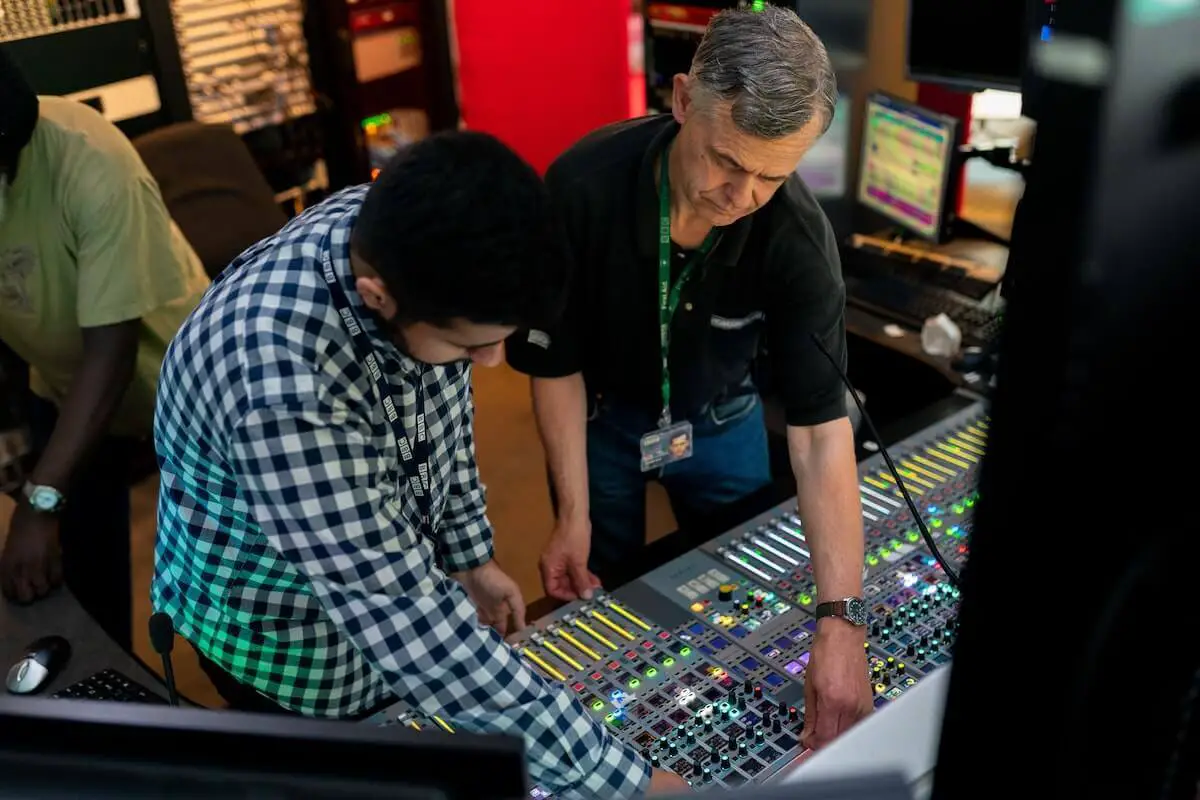
- Music engineers run and manage the soundboard and all the other technical aspects.
- A music producer is in charge of what sounds are included in compositions and songs.
AKAI Professional MPK Mini MK3

AKAI Professional MPK Mini MK3
What does a music engineer do?
Music engineers manage the technical side of music production. This includes understanding the science of the recording, like managing acoustics. A music engineer’s responsibilities include:
- Preparing and operating sound equipment.
- Edit recordings using different tools and software.
- Prepare and treat the recording environment.
What does a music producer do?
A music producer’s job is mostly managerial. Producers are responsible for making almost all of the decisions when it comes to creating music. Some of these decisions include the choice of instruments, where and when those instruments will play, what notes will be sung, and where the recording will take place.
The music producer’s vision is the final product, so they must competently convey their vision to their music production team.
A producer can be compared to a director of a film. They work behind the scenes, and their decisions are everywhere. Their responsibilities include:
- Building the team.
- Mixing tracks.
- Organizing finances and budgeting.
- Making financial decisions.
The music producer’s vision is the final product, so they must competently convey their vision to their music production team. This includes the music engineer.
Producers wear many hats, and it seems like every year, they have to throw another one. Today’s producers are handling things that were handled by 10 different people not 15 years ago. So, it’s likely that these lines will continue to blur between engineers and producers.
What falls outside the scope of a music producer’s role?
The term producer has become very distorted with the rise of music editing software such as fruity loops, logic, and Ableton. So it’s common to hear anyone with a laptop and logic pro call themselves a producer.
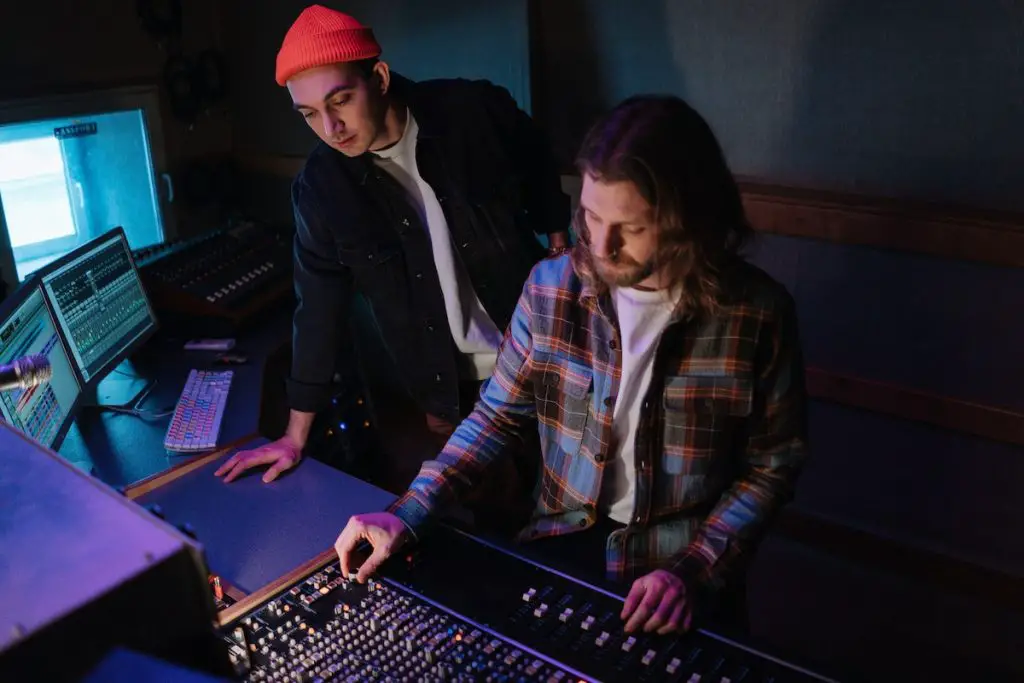
But the truth is people who make beats on their laptops are called beatmakers, not producers. A producer must be more than just a beatmaker. A producer must be a businessperson, someone who makes the decisions necessary to make a track marketable to their target demographic.
Do you need a formal education to work in music production?
Despite what you may have heard from your parents and school counselors, no formal education or training is required for either career path. A degree is always a good thing to have, and it might land you a job at a studio faster, maybe. But the truth is most producers and engineers get training through internships and apprenticeships. This is a career where your skills determine your employment. A client will not ask to see your diploma. I promise.
If you want even more tips and insights, watch this video called “What’s the Difference Between a Producer and an Engineer” from the Full Circle Music YouTube channel.
Frequently asked questions (FAQ)
Do you still have questions? Below are some of the most commonly asked questions about music production.
Is a music engineer the same as a music producer?
A producer is a manager who oversees the whole recording process, from conception to execution. On the other hand, music engineering is an entirely scientific endeavor. To create a certain tone for the artist, they operate the studio equipment.
Is an engineer considered a producer?
You will find some overlap between audio producers and engineers. Many producers began as engineers, and in today’s recording environment, they are frequently the same person! On the whole, nevertheless, the engineer’s job entails more technical duties.
Why do producers call themselves engineers?
The term engineers is a bit of a throwback to the days when sound recording needed serious technical expertise. Of course, this is not to argue that contemporary practitioners lack expertise or are not making use of it. It used to be difficult to record sound.
Conclusion
If you’re just getting started, you’re probably the music producer, and the music engineer is in charge of your project. But over time, your responsibilities will become much more apparent. Hopefully, you now understand better the differences between a music engineer and a music producer, what they do, and how they come together to create the music we love.
So, are you interested in being a producer or an engineer? And did I cover everything you wanted to know? Let me know in the comments section below. I read and reply to every comment. If you found this article helpful, share it with a friend, and check out my full blog for more tips and tricks on music production. Thanks for reading, and never stop making music.
Key takeaways
This article covered music production, what a producer does, and what an engineer does. Here are some key takeaways:
- Music engineers and producers often work together as a team alongside music artists.
- Music engineers manage the technical side of music production. Their job includes preparing a recording session and setting up the mic.
- A music producer’s job is mostly managerial and they are responsible for making almost all of the decisions when it comes to creating music.
- The term producer has become distorted with the rise of music editing software.
- No formal education or training is required for either career path.

